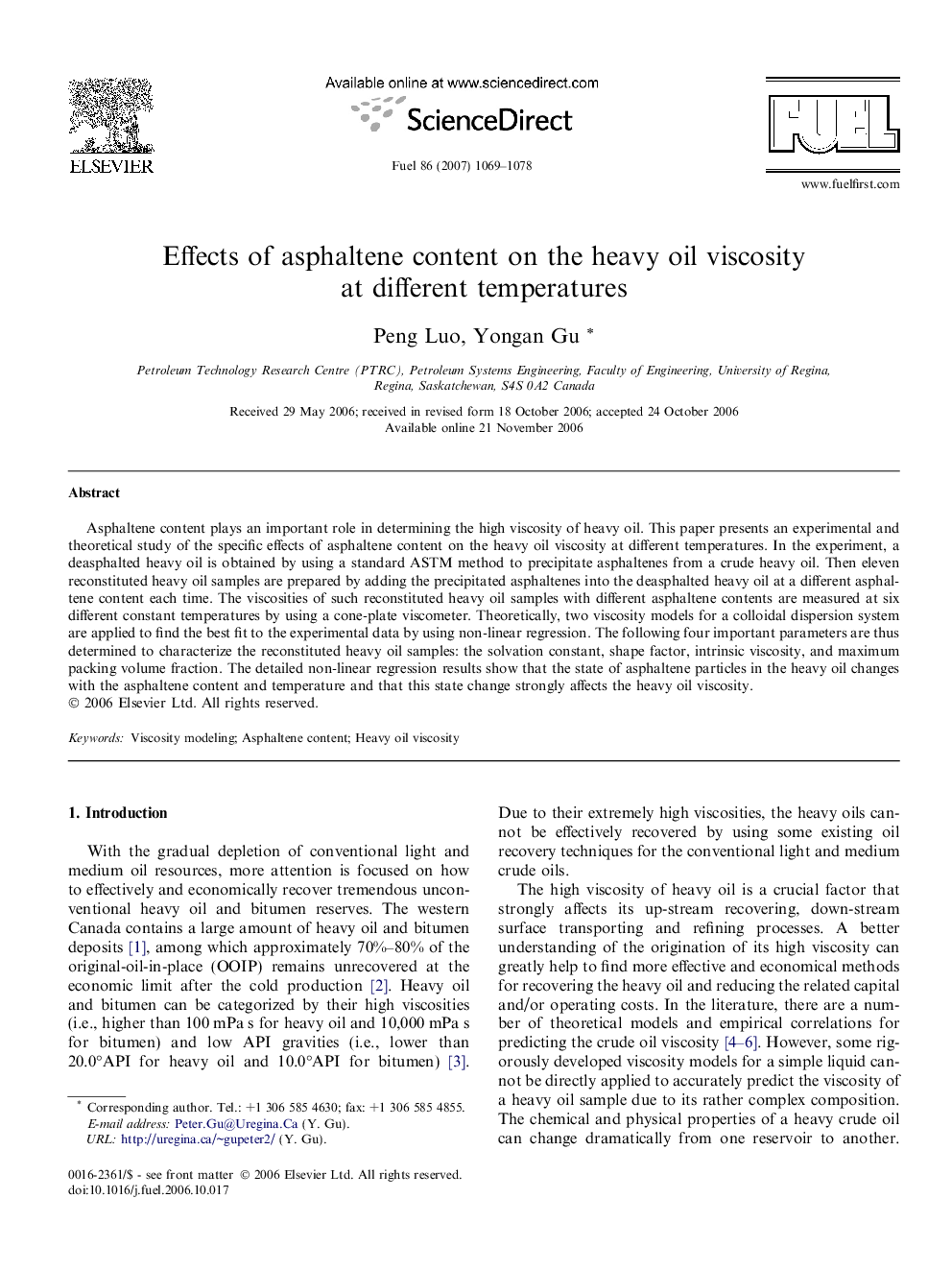| Article ID | Journal | Published Year | Pages | File Type |
|---|---|---|---|---|
| 208320 | Fuel | 2007 | 10 Pages |
Asphaltene content plays an important role in determining the high viscosity of heavy oil. This paper presents an experimental and theoretical study of the specific effects of asphaltene content on the heavy oil viscosity at different temperatures. In the experiment, a deasphalted heavy oil is obtained by using a standard ASTM method to precipitate asphaltenes from a crude heavy oil. Then eleven reconstituted heavy oil samples are prepared by adding the precipitated asphaltenes into the deasphalted heavy oil at a different asphaltene content each time. The viscosities of such reconstituted heavy oil samples with different asphaltene contents are measured at six different constant temperatures by using a cone-plate viscometer. Theoretically, two viscosity models for a colloidal dispersion system are applied to find the best fit to the experimental data by using non-linear regression. The following four important parameters are thus determined to characterize the reconstituted heavy oil samples: the solvation constant, shape factor, intrinsic viscosity, and maximum packing volume fraction. The detailed non-linear regression results show that the state of asphaltene particles in the heavy oil changes with the asphaltene content and temperature and that this state change strongly affects the heavy oil viscosity.
